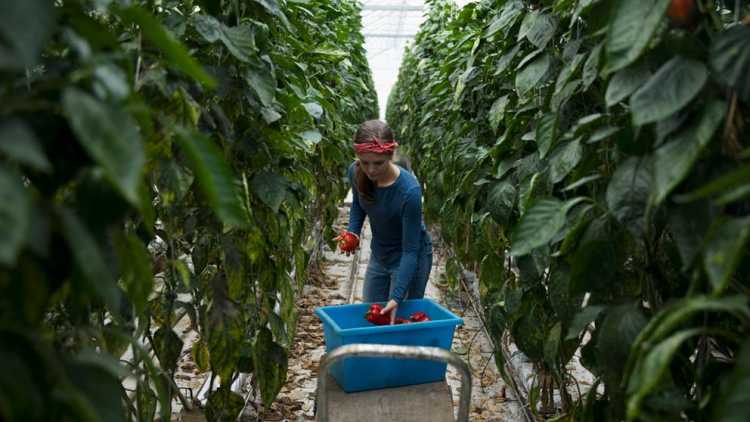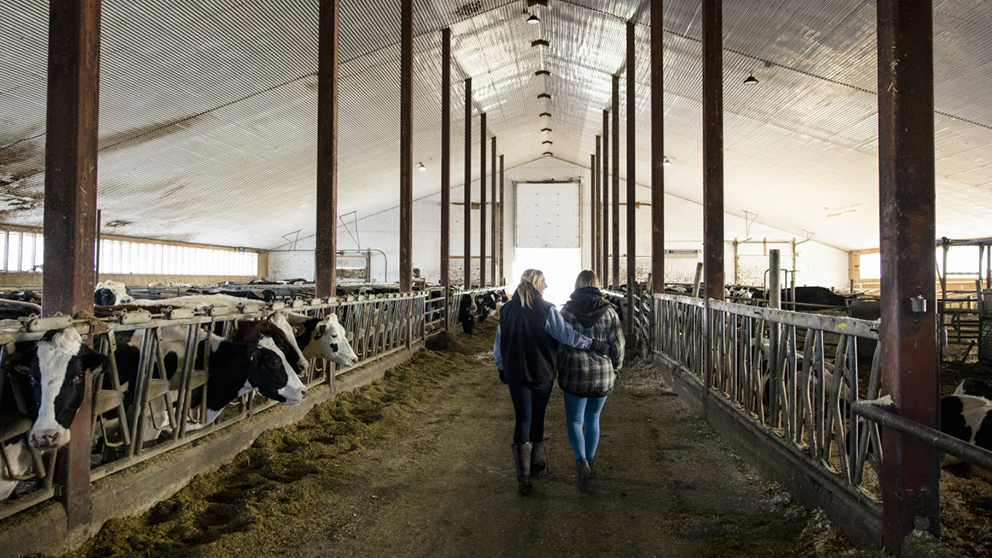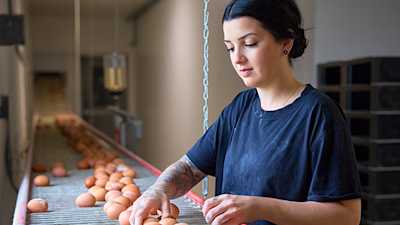How leadership programs set young farmers up for success

Mentorship and leadership training programs continue to grow in popularity for young people getting into Canadian agriculture.
Canadian agriculture is changing. Each year, more young people are moving into leadership positions on the farm, at agribusinesses or both.
There’s much to learn in either setting, so how can young farmers expand their leadership skills so they can be successful? The answer is simple: In many ways.
An increasing number of agricultural leadership programs are popping up across the country, and the offerings for 20-somethings have never been richer.
Leadership and connections
Originally from a beef operation in Lorne Valley, P.E.I. Ellen Crane applied when she was 26 and was accepted into the Canadian Cattlemen’s Association leadership program, appropriately titled the Cattlemen’s Young Leaders Mentorship Program. As a 26-year-old, she knew a good deal about Maritime beef protocols and procedures but wanted to learn more about the industry nationally.
At one of the initial meetings, she was told the program “would open doors you didn’t even know existed.”
“That was definitely the case for me,” says Crane, now 30.
Crane was paired with John Baker who was with the Ontario Corn Fed Beef program. Throughout the program’s one-year timeline, Crane gleaned as much as she could from Baker and others she met through him.
“I built up this network of individuals that I’ve been able to reach back to, connect with and that helped me with my first job at the Maritime Beef Council,” says Crane, who today works in Truro, N.S. as an extension co-ordinator for the Beef Cattle Research Council.
Crane was also surprised by how much she learned about national and international beef dealings, thanks to Baker and other program members.
“The biggest change from this program is the way that my perception of the industry has changed, in a good way,” Crane says. “It gave me a better perspective on how our industry operates. If you are involved in the right organization, you can be involved in the conversation.”
Beyond the Cattlemen’s program, Crane completed a Nuffield scholarship, where she was able to visit 10 countries and continue to bolster her knowledge of both beef and international markets.
Priceless experience
Henry Vos of Fairview, Alta., has been involved in agricultural leadership and development programs, boards and associations for the entirety of his farming career stretching back to the 1980s.
Passionate about leaving the industry better than when he found it, he says the priceless value of any leadership program cannot be overlooked.
Vos says the programs and groups he’s been involved with facilitate meeting new people and learning how and why they operated their farms. It’s simultaneously been an education and a joy.
“It was a way of getting exposure to the world, other ideas in Western Canada that you wouldn’t necessarily get by reading and studying magazines and articles,” Vos says. “It was a way of learning about other ways of doing things that added value back to the farm.”
Vos strongly believes in the value of mentors and how they can be instrumental in a young person’s life.
“You recognize much after the fact the influence they had on your life and your thinking and the contribution to your growth and development,” Vos says. “That’s what I have now looking back at all these organizations I’ve been involved with.”
Big picture thinking
Larry Martin is an agricultural management expert and owner of Agri-food Management Excellence, a leadership program based in Guelph, Ont.
“This business is becoming so much more complex, very few people can do it all themselves,” Martin says. “If you’re going to be successful, you have got to figure out how you’re going to exert leadership to get the best performance out of [employees].”
Martin suggests young people sit down and do an internal gut check and analyze what they may want out of a leadership program.
“What I do get, interestingly, from people who have done various [leadership programs], is that if you take whatever you learn and take it to heart, they have huge amounts of satisfaction with their ability to lead and manage,” he says.
Take action
That satisfaction will never be realized without getting off the fence and applying for a program. For Crane, applying for leadership programs was one of the best moves in her early agricultural career.
“Just go for it, apply for the program and see what opportunities are out there,” Crane says. “I was completely surprised by what I was able to accomplish.”
Vos’ beliefs mirror Crane, and he encourages young farmers to push beyond any trepidation. The upside is often so great it’s hard to overlook for those serious about expanding their horizons through leadership and professional development.
“While the initial benefits on paper may look interesting or attractive, if you get involved and participate fully in courses, you wind up coming out a richer person and with more knowledge,” Vos says. “In many cases, you recognize how little you understand about a particular area and how much you can get from the education. You may not recognize that going into it initially.”
Bottom line
Leadership and professional development programs offer young people in agriculture the ability to develop connections, learn about their specific subset of ag and beyond and unlock professional benefits they did not know previously existed.
Article by: Trevor Bacque

With up to 80% of Canadian farmers experiencing middle to high-stress levels, it’s important to develop a comprehensive risk management plan.
